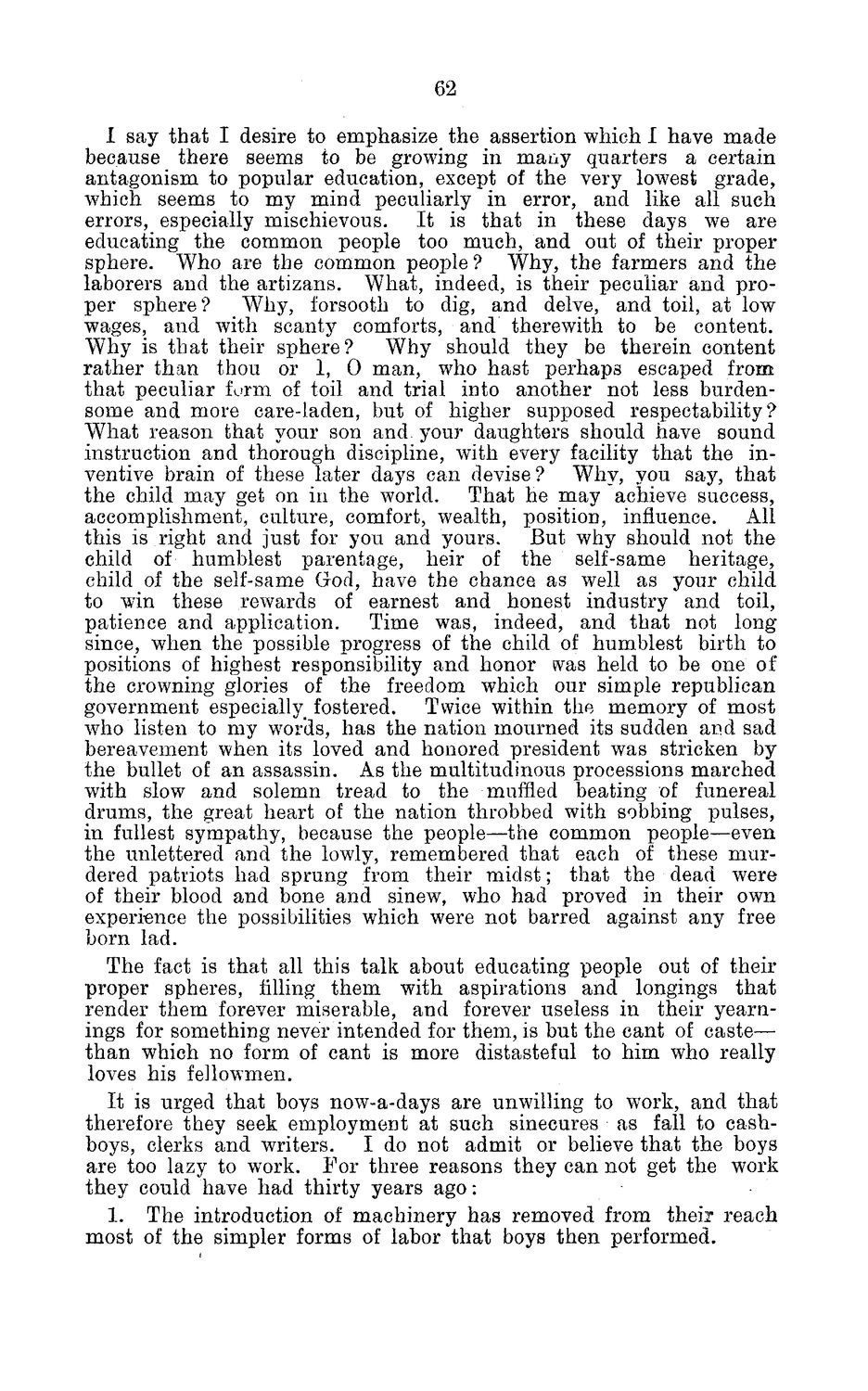| |
| |
Caption: Board of Trustees Minutes - 1884
This is a reduced-resolution page image for fast online browsing.

EXTRACTED TEXT FROM PAGE:
62 I say that I desire to emphasize the assertion which I have made because there seems to be growing in many quarters a certain antagonism to popular education, except of the very lowest grade, which seems to my mind peculiarly in error, and like all such errors, especially mischievous. It is that in these days we are educating the common people too much, and out of their proper sphere. Who are the common people? Why, the farmers and the laborers and the artizans. What, indeed, is their peculiar and proper sphere? Why, forsooth to dig, and delve, and toil, at low wages, and with scanty comforts, and therewith to be content. Why is that their sphere? Why should they be therein content rather than thou or 1, 0 man, who hast perhaps escaped from that peculiar furm of toil and trial into another not less burdensome and more care-laden, but of higher supposed respectability? What reason that your son and your daughters should have sound instruction and thorough discipline, with every facility that the inventive brain of these later days can devise ? Why, you say, that the child may get on in the world. That he may achieve success, accomplishment, culture, comfort, wealth, position, influence. All this is right and just for you and yours. But why should not the child of humblest parentage, heir of the self-same heritage, child of the self-same God, have the chance as well as your child to win these rewards of earnest and honest industry and toil, patience and application. Time was, indeed, and that not long since, when the possible progress of the child of humblest birth to positions of highest responsibility and honor was held to be one of the crowning glories of the freedom which our simple republican government especially fostered. Twice within the memory of most who listen to my words, has the nation mourned its sudden and sad bereavement when its loved and honored president was stricken by the bullet of an assassin. As the multitudinous processions marched with slow and solemn tread to the muffled beating of funereal drums, the great heart of the nation throbbed with sobbing pulses, in fullest sympathy, because the people—the common people—even the unlettered and the lowly, remembered that each of these murdered patriots had sprung from their midst; that the dead were of their blood and bone and sinew, who had proved in their own experience the possibilities which were not barred against any free born lad. The fact is that all this talk about educating people out of their proper spheres, rilling them with aspirations and longings that render them forever miserable, and forever useless in their yearnings for something never intended for them, is but the cant of caste— than which no form of cant is more distasteful to him who really loves his fellowmen. It is urged that boys now-a-days are unwilling to work, and that therefore they seek employment at such sinecures as fall to cashboys, clerks and writers. I do not admit or believe that the boys are too lazy to work. For three reasons they can not get the work they could have had thirty years ago: 1. The introduction of machinery has removed from their reach most of the simpler forms of labor that boys then performed.
| |